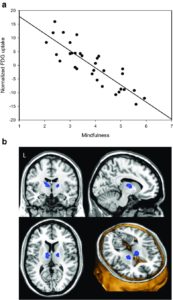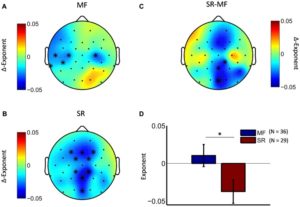Improve Psychological Health in Pregnancy with Mindfulness
By John M. de Castro, Ph.D.
“Not only does cultivating moment-to-moment awareness of thoughts and surroundings seem to help pregnant women keep their stress down and their spirits up—benefits that are well-documented among other groups of people—it may also lead to healthier newborns with fewer developmental problems down the line.” – Kira Newman
The perinatal period, from the onset of pregnancy to the end of the infants first year, is a time of intense physiological and psychological change in both the mother and the infant. Anxiety, depression, and fear are quite common during pregnancy. More than 20 percent of pregnant women have an anxiety disorder, depressive symptoms, or both during pregnancy. A debilitating childbirth fear has been estimated to affect about 6% or pregnant women and 13% are sufficiently afraid to postpone pregnancy. It is difficult to deal with these emotions under the best of conditions but in combinations with the stresses of pregnancy can turn what could be a joyous experience of creating a human life into a horrible worrisome, torment.
The psychological health of pregnant women has consequences for fetal development, birthing, and consequently, child outcomes. Depression during pregnancy is associated with premature delivery and low birth weight. Childbirth fear is associated with “low childbirth self-efficacy, greater use of pain medication during labor, more unwanted obstetric interventions in labor, as well as increased risk of postpartum depression.” Hence, it is clear that there is a need for methods to treat childbirth fear, depression, and anxiety during pregnancy. Since the fetus can be negatively impacted by drugs, it would be preferable to find a treatment that did not require drugs. Mindfulness training has been shown to improve anxiety and depression normally and to relieve maternal anxiety and depression during pregnancy. So, it would make sense to further study the effects of mindfulness training during the perinatal period.
In today’s Research News article “A Comparative Study of Mindfulness Efficiency Based on Islamic-Spiritual Schemes and Group Cognitive Behavioral Therapy on Reduction of Anxiety and Depression in Pregnant Women.” See summary below or view the full text of the study at: https://www.ncbi.nlm.nih.gov/pmc/articles/PMC5385237/, Aslami and colleagues recruited Islamic women in their 16th to 32nd week of pregnancy and based upon pretesting of anxiety and depression selected two groups; a high anxiety and a high depression group. The groups were then randomly divided into a no-treatment control condition, a 12-week Cognitive Behavioral Therapy (CBT) condition or an 8-week Mindfulness-Based Stress Reduction (MBSR) condition. Traditional MBSR consists of training and practice in meditation, yoga, and body scan. The researchers modified the training protocol to include Islamic spiritual teachings. The CBT and MBSR conditions were assigned home practice for 45 minutes per day for 6 days per week. The participants were measured for anxiety and depression before and after treatment.
They found that both the Cognitive Behavioral Therapy (CBT) and Mindfulness-Based Stress Reduction (MBSR) conditions produced significant decreases in both anxiety and depression while the no-treatment control group did not. In addition, the MBSR condition produced significantly greater reductions than the CBT condition. In fact, MBSR produced a very large reduction, on average, of 79% in anxiety and 81% in depression while CBT produced, on average, only a 45% reduction in anxiety and a 43% reduction in depression. Hence, although CBT was effective, MBSR produced far greater improvements in the pregnant women’s psychological states.
These are excellent results. It has been well established that mindfulness training produces significant reductions in anxiety and depression in a wide variety of people with a variety of conditions. But, this trial compared its effectiveness to another known effective treatment, Cognitive Behavioral Therapy (CBT) and found MBSR to be far superior. I am not aware of any other direct comparisons of the two forms of therapy. It is not known, however, if the inclusion of Islamic spiritual teachings added to MBSR’s effectiveness in this group of Islamic women. Regardless, it is clear the MBSR training is highly effective in reducing anxiety and depression in pregnant women. This should be of great assistance in making for a smooth remainder of the pregnancy and delivery and may well produce better outcomes with the infant.
So, improve psychological health in pregnancy with mindfulness.
“There could not be a better time to learn mindfulness than during pregnancy and early motherhood. For one thing, this is a time when most people have a strong motivation to become the best person they can be in a relatively short period of time. When you realize the full enormity of the responsibility you have taken on by becoming a mom, the primary source of care for another whole human being, not to mention one that you love more than you thought you could ever love, there is a really high level of motivation to try your best to get yourself into the best mental and emotional shape possible.” – Cassandra Vieten
CMCS – Center for Mindfulness and Contemplative Studies
This and other Contemplative Studies posts are also available on Google+ https://plus.google.com/106784388191201299496/posts and on Twitter @MindfulResearch
Study Summary
Aslami, E., Alipour, A., Najib, F. S., & Aghayosefi, A. (2017). A Comparative Study of Mindfulness Efficiency Based on Islamic-Spiritual Schemes and Group Cognitive Behavioral Therapy on Reduction of Anxiety and Depression in Pregnant Women . International Journal of Community Based Nursing and Midwifery, 5(2), 144–152.
Abstract
Background:
Anxiety and depression during the pregnancy period are among the factors affecting the pregnancy undesirable outcomes and delivery. One way of controlling anxiety and depression is mindfulness and cognitive behavioral therapy. The purpose of this study was to compare the efficiency of mindfulness based on the Islamic-spiritual schemas and group cognitive behavioral therapy on reduction of anxiety and depression in pregnant women.
Methods:
The research design was semi-experimental in the form of pretest-posttest using a control group. Among the pregnant women in the 16th to 32nd weeks of pregnancy who referred to the health center, 30 pregnant women with high anxiety level and 30 pregnant women with high depression participated in the research. Randomly 15 participants with high depression and 15 participants with high anxiety were considered in the intervention group under the treatment of mindfulness based on Islamic-spiritual schemes. In addition, 15 participants with high scores regarding depression and 15 with high scores in anxiety were considered in the other group. The control group consisted of 15 pregnant women with high anxiety and depression. Beck anxiety-depression questionnaire was used in two steps of pre-test and post-test. Data were analyzed using SPSS, version 20, and P≤0.05 was considered as significant.
Results:
The results of multivariate analysis of variance test and tracking Tukey test showed that there was a significant difference between the mean scores of anxiety and depression in the two groups of mindfulness based on spiritual- Islamic scheme (P<0.001) and the group of cognitive behavioral therapy with each other (P<0.001) and with the control group(P<0.001). The mean of anxiety and depression scores decreased in the intervention group, but it increased in the control group.
Conclusion:
Both therapy methods were effective in reduction of anxiety and depression of pregnant women, but the effect of mindfulness based on spiritual- Islamic schemes was more.









